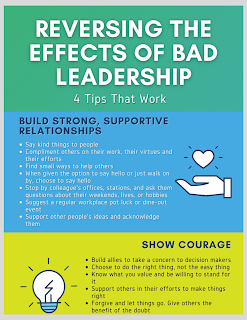8 lessons learnt when moving into a new leadership role…
In January 2022, I moved into my first Headship. This wasn’t under the usual circumstances, but as a secondment. Whilst it definitely had its positives - I got to ‘try out the school before I committed’ and not many people get to do that - it also came with a bunch of significant challenges.
I didn’t know whether I’d be staying more than my initial 2 terms and neither did the staff, I’ll talk about the challenges of this in another post.
Below are some of the things that I learnt when going into that new role and a few things to consider when moving in the future:
1. Decide on the type of leader you want to be - We’ll start off with the hardest one. Decide the type of leader you want to be and make sure that you follow through on it.
Think of all of the best (and worst) leaders that you’ve ever followed. What do they all have in common? What skills, values and attributes do you want to be known for?
You have an opportunity to ‘reinvent’ yourself with little baggage and a whole lot of potential.
This has to be authentic, though. People can spot a ‘liar’ miles away. It’s a sort of, hidden superpower we all have.
2. Get familiar with the difference between leadership and management. You don’t “manage” people, you manage their output.
You “lead” people. What do you want to achieve and how are you going to get help in achieving it? Think back to point one. Who are the best leaders you’ve worked for and what we’re the reasons you followed?
3. Get comfortable being the idiot - those already at the school will know more than you. That’s fine. How can you be expected to know a whole community from a couple of days of interviews, a walk around and a look on the website? See them as a tool to help you do your job, rather than as a threat to it.
Don’t be afraid to say if you don’t know exactly what your priorities need to be on day one. How can you? Take time to make them meaningful rather than writing a few things down so that you’ve got something.
4. Be complimentary of the previous post holder - you have no idea of the situation prior to your arrival and the majority of the team will be responsible in part for decisions made by previous leaders. Don’t isolate yourself by being judgemental and inadvertently criticising your fellow leaders. It is likely that the SLT you have inherited will have played a major part in those initiatives that you’re less than impressed with.
Spend time finding out the reasoning behind decisions made, rather than declaring you know all the answers and being solely to blame when your ‘brilliant’ ideas don’t transfer well to another setting.
5. Share your ‘WHY’ (and encourage others to share theirs too) - when you start, the team will want to know what makes you tick. Don’t leave this up to anyone else’s interpretation. Be honest and open from minute one. Explain what you want and how it builds towards your long term vision for school.
6. Spend time concerning yourself with human beings, not just their output. Lots of people believe the main reason for a breakdown in relationships is conflict but it isn’t, it’s neglect.
Ask people about their lives and CARE about the answers. Not just a pass on the corridor conversation, show a real interest. Which also means you should…
7. Remember that those you lead have lives outside your school - and treat them as such. They are someone’s parent, child, brother or sister. They may have other interests. All of this should be celebrated, not treated as something that gets in the way of work.
You also need to model these behaviours if you want others to feel confident enough to show them. The best ‘well-being’ policies in the world will fail if the leadership don’t also look after themselves - the team see that you’re saying one thing and doing another. Remember number 1, be authentic.
8. Reward the behaviours you want, rather than those who give you the ‘best’ output, another reference to point 6. Imagine that you have a teacher who is toxic but gets you decent SATS results and another teacher who takes a little longer to get the results for their class but embodies the ethos and culture you want to create, who are you going to reward. Performance Management targets will normally favour the former but those with a longer term vision understand the necessity of the latter.
Obviously the ideas on this list are not the only things that will make you successful, but they’re a start. And you have to start somewhere.
If you’d like to help out wonderful school, please consider buying a book from our Amazon Wishlist.



Comments
Post a Comment